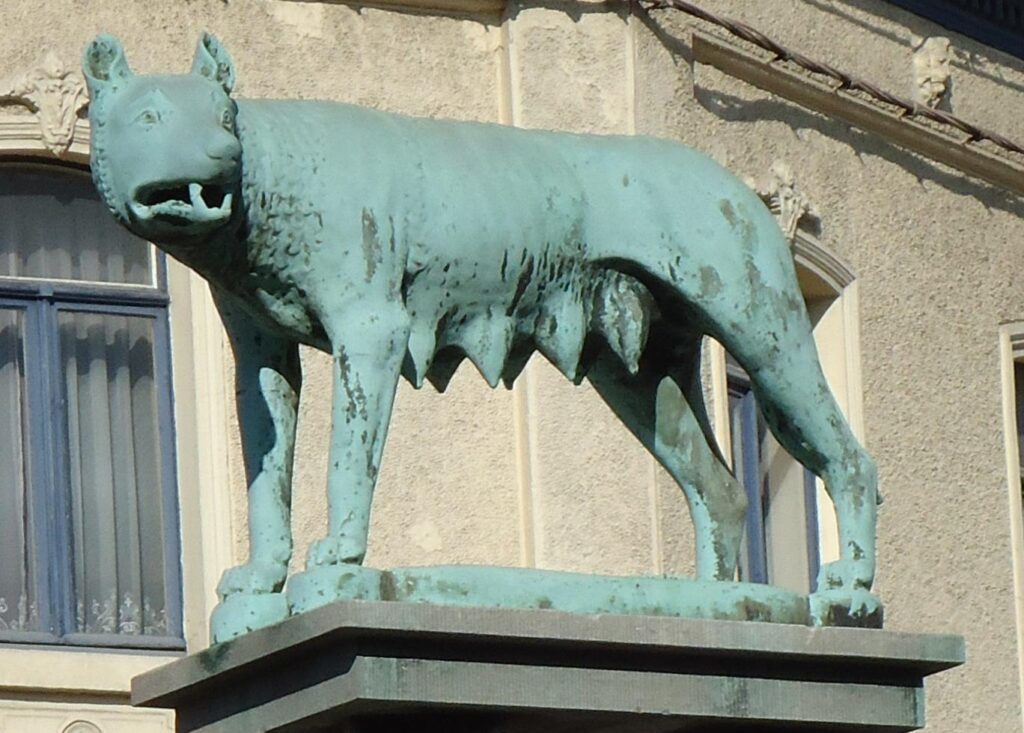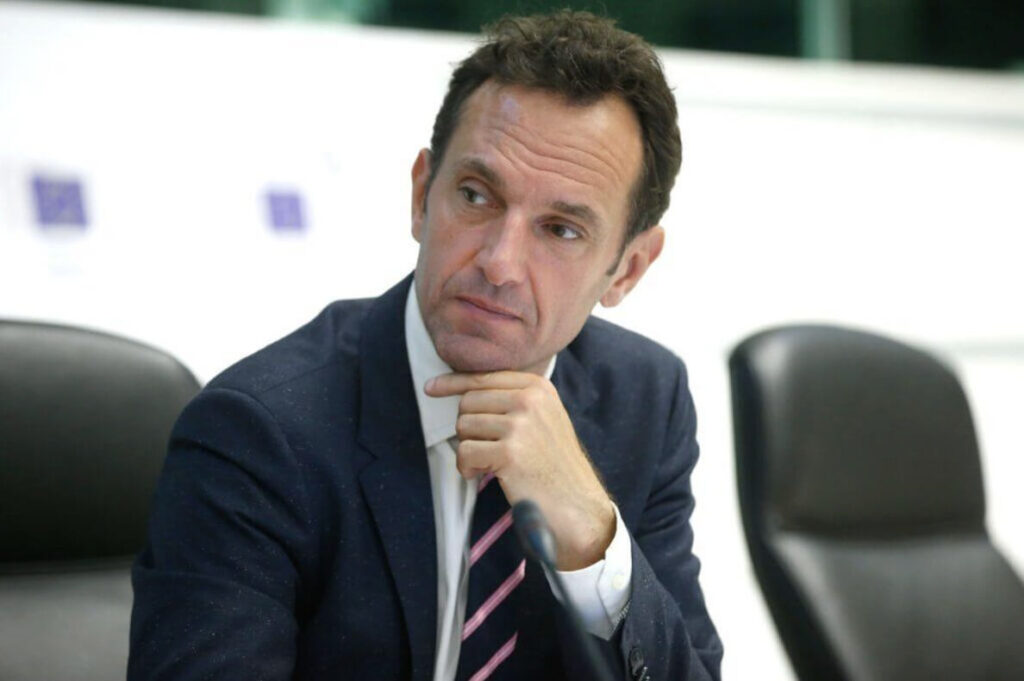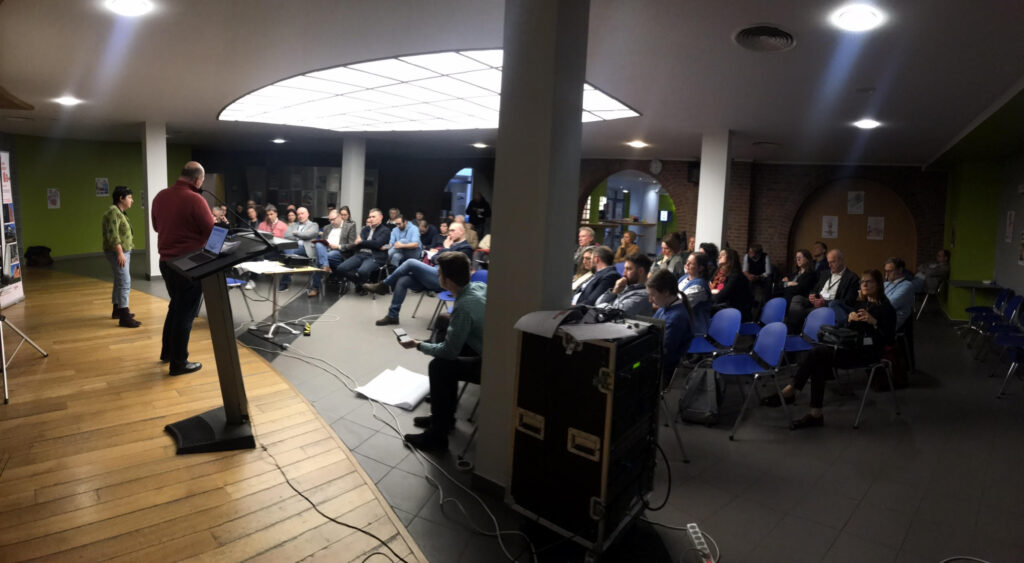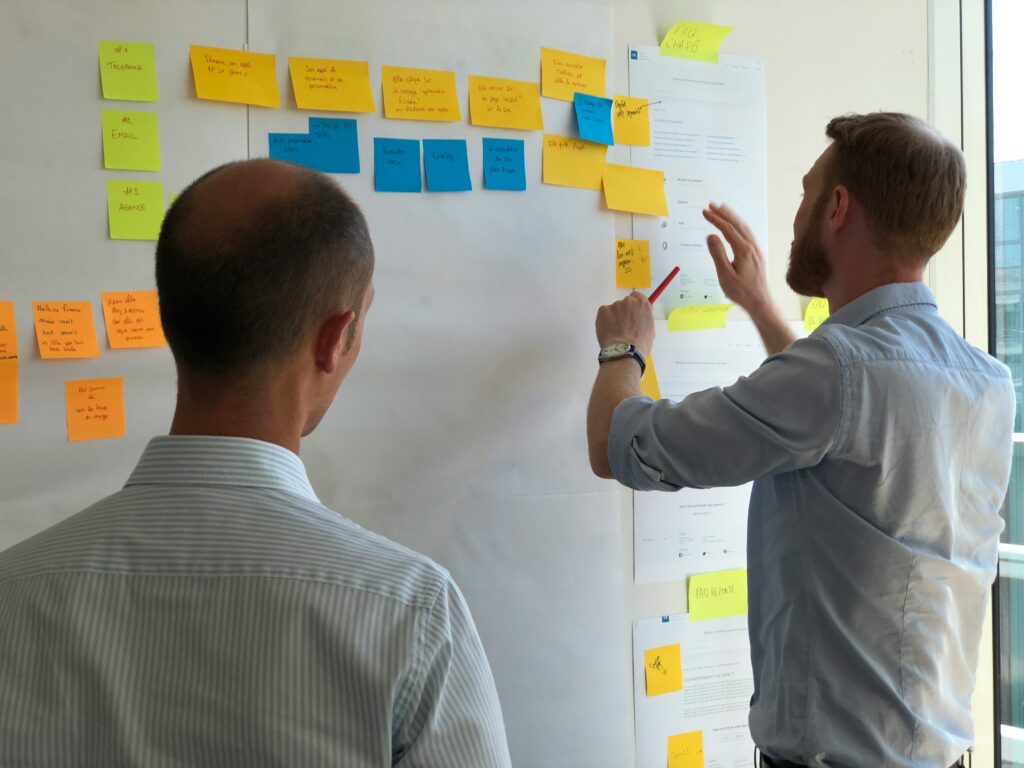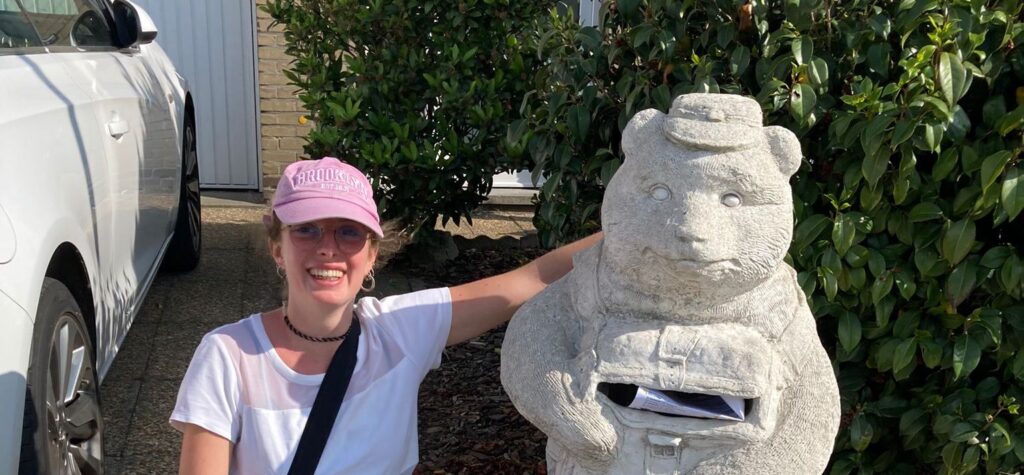Municipality of La Louvière (BE): 150 young people mobilised to imagine the future of their town
As part of the ‘La Louvière 2050’ project to make the city more attractive and dynamic, the local authority wanted to give young people a say in their ideas and projects. Between March and April 2024, Dreamocracy ran workshops in 6 schools in La Louvière, reaching out to a wide range of young people, from specialist and technical education to general education. More than 150 young people were given the opportunity to imagine what they would like for the future of their town and to develop concrete projects, financed and implemented by the town. All these projects were submitted to a jury made up of young people and city representatives. Finally, the pupils from each school came together for a prize-giving ceremony, at which the most innovative proposals were rewarded and the 3 winning projects funded by the city were chosen!
A ‘serious game’ for understanding complex issues
Dreamocracy mobilised tools to enable visioning and scenario planning. These tools allowed participants to listen to each other actively, clarify creative challenges and produce systemic analysis. They managed to do so through constructive dialogue, collaborative co-creation and teamwork.
An interactive fresco was used to get to grips with complex issues: before proposing ideas, the pupils had to get to grips with the major challenges facing La Louvière, as identified by the city in order to build its 2050 transformation project. Given the complexity of the issues at stake (economic, social and environmental), Dreamocracy drew its inspiration from the Fresque du climat, a tested method for making climate challenges accessible to everyone. Pupils were guided through the process of placing the cards in the right order, explaining the links to be made between each of them.
Most pupils’ talents were made to stimulate their creativity: several “creative boosters” were used to stimulate innovative ideas. One of these consisted in using everyone’s favourite activities and their talents. They first had to identify one of their talents and then come up with ideas for the city that would make the most of that talent. This method made it possible to harness the full range of pupils’ abilities, enabling technical students in particular to showcase their practical skills through the proposed projects (carpentry, horticulture, cooking, etc.).
Services provided
- Listening deeply, clarifying creative challenges and systemic analysis
- Enabling constructive dialogue between a diversity of participants
- Co-creation, collaboration and teamwork
- Smart and inclusive decision making, facilitation of consensus building
An inclusive success
The process brought together 6 schools and 151 students who produced more than 600 ideas. 23 project proposals were sent to the Commune to support its 2050 vision. An inclusive approach has enabled pupils, in particular kids with troubled backgrounds, to feel fully legitimate and able to contribute.
